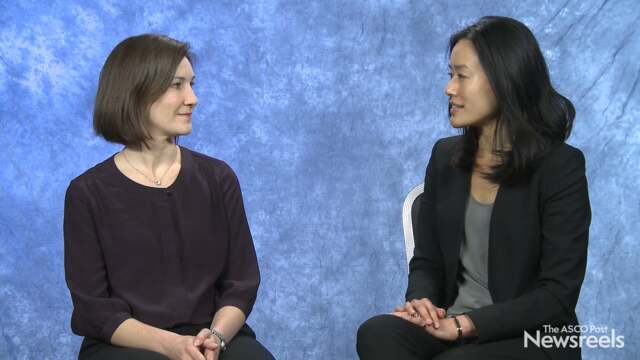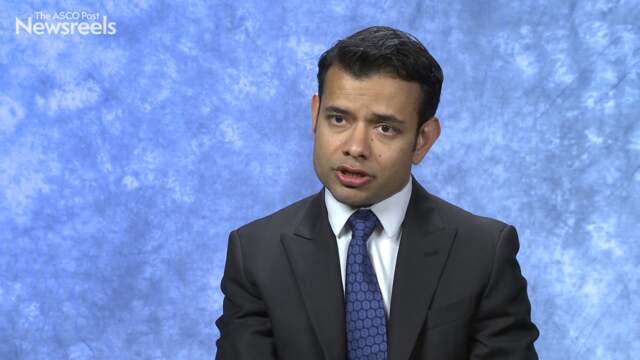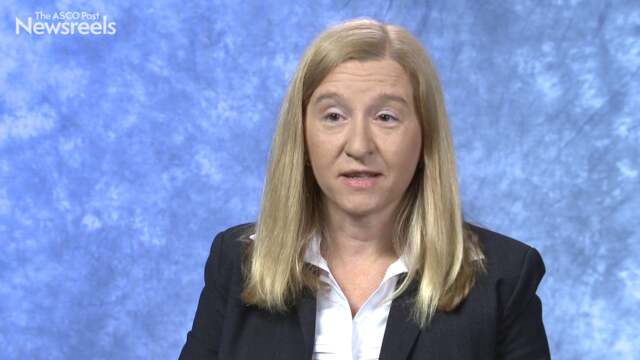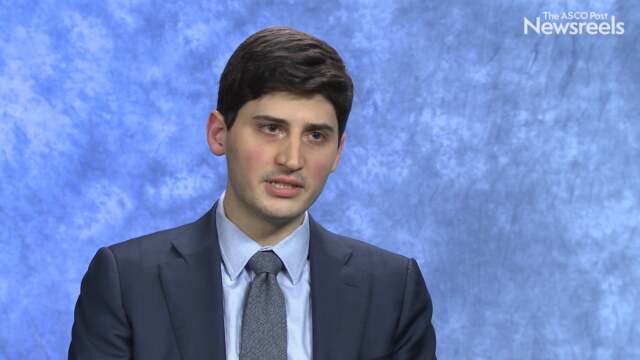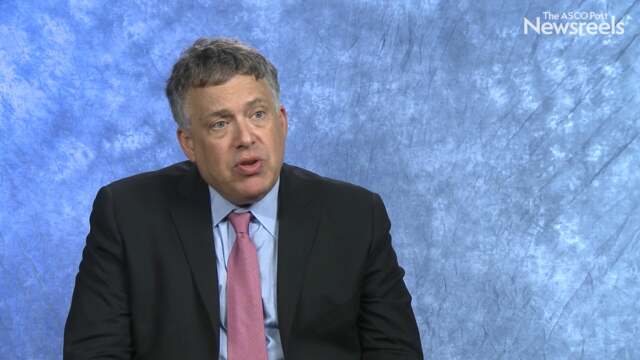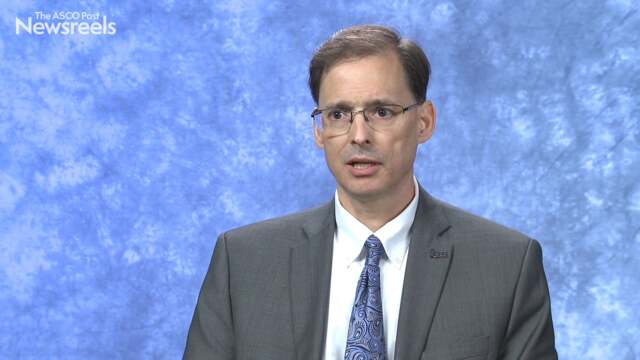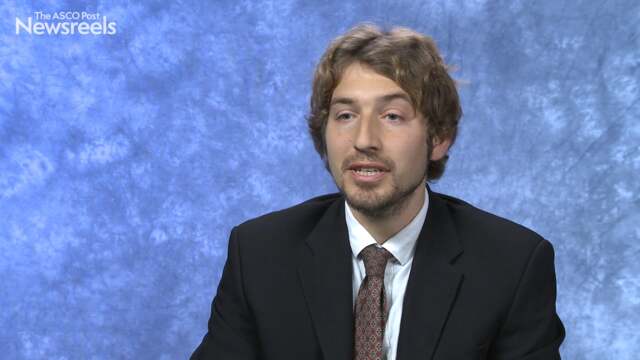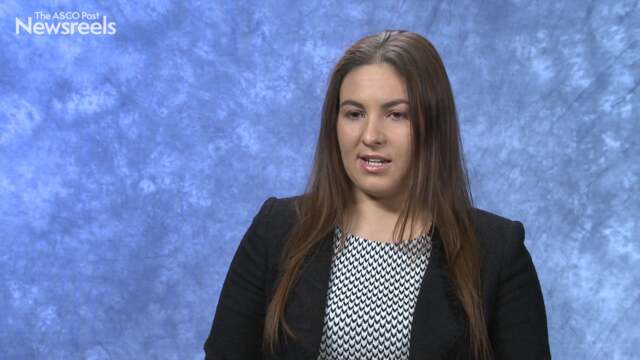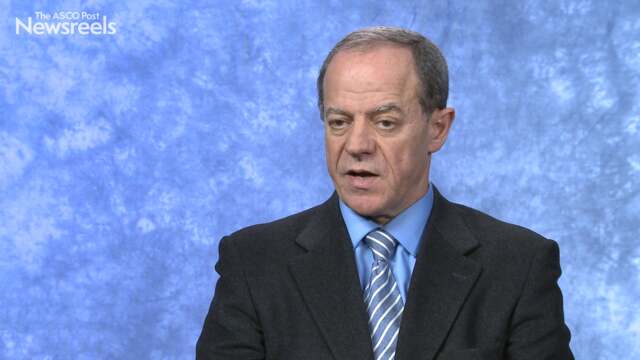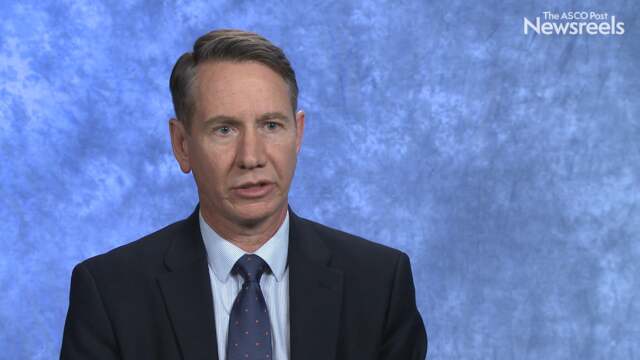2018 ASCO-SITC Clinical Immuno-Oncology Symposium
Trivalent CAR T-Cell Design May Enhance Antitumor Efficacy in Acute Lymphoblastic Leukemia
A novel approach to chimeric antigen receptor (CAR) T-cell therapy seems to effectively target acute lymphoblastic leukemia (ALL) cells with varying antigen profiles and may help to overcome antigen e...
Testing for PD-L1 Amplification May Help Predict Response to Immune Checkpoint Blockade in Solid Tumors
Analysis of more than 100,000 patients with cancer for gene CD274 (programmed cell death ligand 1 [PD-L1]) amplification may have implications for treatment with immune checkpoint blockade. Although s...
Targetable Immune Biology Found in Some Patients With Early-Stage Prostate Cancer
Although immunotherapy has improved outcomes across a growing number of cancers, its success in unselected cases of prostate cancer has been limited. According to data presented at the 2018 ASCO-SITC ...
Expression of Endogenous Retroviruses May Explain Response to Immune Checkpoint Therapy in Renal Cell Cancer
RESULTS OF a new study suggest that expression of endogenous retroviruses may be associated with activation of immune checkpoint pathways in renal cell cancer.1 According to data presented at the 2018...
EXPERT POINT OF VIEW: Deborah J.L. Wong, MD, PhD
DISCUSSANT FOR THIS abstract, Deborah J.L. Wong, MD, PhD, of the David Geffen School of Medicine at the University of California, highlighted the preclinical rationale, as well as in vitro and in viv...
Combination PARP and PD-1 Inhibition Shows Antitumor Activity in Advanced Malignancies
IN A PHASE I trial of patients with advanced solid tumors, the combination of pamiparib (BGB-290), a selective poly (ADP-ribose) polymerase (PARP) inhibitor, and tislelizumab (BGB-A317), an agent targ...
Responses Reported With CAR T-Cell Therapy in High-Risk NHL
LISOCABTAGENE MARALEUCEL (Liso-cel; JCAR017), a CD19-directed chimeric antigen receptor (CAR) T-cell therapy with defined composition, has shown “potent and durable” responses in poor-prognosis patien...
Combination Radiotherapy and Immunotherapy Appears Safe and Clinically Active in Advanced Solid Tumors
Results from the first and largest prospective trial to determine the safety of multisite ablative stereotactic body radiotherapy (SBRT) in combination with anti–programmed cell death protein 1 (anti–...
Ann W. Silk, MD, and Katy K. Tsai, MD: Meeting Highlights
Ann W. Silk, MD, of the Rutgers Cancer Institute of New Jersey, and Katy K. Tsai, MD, of the University of California, San Francisco, who are Co-Chairs of the Clinical Immuno-Oncology Symposium, discu...
Sumanta K. Pal, MD, on Renal Cancer Immunotherapy: Latest Developments
Sumanta K. Pal, MD, of the City of Hope, discusses immunotherapy as a front-line treatment for kidney cancer and the strategy of VEGF blockade with immunotherapy, which is emerging as a possible treat...
Linda Mileshkin, MBBS, on Solid Tumors: Early Treatment Study Results
Linda Mileshkin, MBBS, of the Peter MacCallum Cancer Centre, discusses phase Ib trial findings on the anti–PD-1 monoclonal antibody BGB-A317 in combination with the PARP inhibitor BGB-290 in advanced ...
Jeffrey M. Lemons, MD, on Solid Tumors: Safety Data on SBRT and Immunotherapy
Jeffrey M. Lemons, MD, of the University of Chicago, discusses early safety and efficacy findings from a small study on pembrolizumab and multiorgan-site ablative stereotactic body radiotherapy in pat...
Roy S. Herbst, MD, PhD, on Personalized Immunotherapy for Lung Cancer: Expert Perspective
Roy S. Herbst, MD, PhD, of the Yale School of Medicine, summarizes a session that included discussion of the mechanisms of immunotherapies, biomarkers for activity of these agents, overcoming resistan...
James L. Gulley, MD, PhD, on Prostate Cancer: Expanding Immunotherapy Options
James L. Gulley, MD, PhD, of the National Cancer Institute, discusses combined treatment approaches showing early evidence of clinical activity: agents such as vaccines or PARP inhibitors that can ini...
Aaron Goodman, MD, on Immune Checkpoint Blockade: Clinical Implications
Aaron Goodman, MD, of the University of California, San Diego School of Medicine, discusses an analysis of more than 100,000 patients with cancer for CD274 (PD-L1) amplification and the implications f...
Kristen Fousek, PhD Candidate, on B-Cell ALL: CAR T-Cell Treatment
Kristen Fousek, PhD Candidate at Baylor College of Medicine, discusses her preclinical work on targeting CD19-negative relapsed B-cell acute lymphoblastic leukemia, using CAR T cells that target three...
Mary L. Disis, MD, on Basics of Immunology: An Overview
Mary L. Disis, MD, of the University of Washington, discusses innate and adaptive immune system cells, T cells as key to mediating antitumor immunity, and the mechanisms by which cancer evades the imm...
Joaquim Bellmunt, MD, PhD, on Bladder Cancer: The Future of Immunotherapies
Joaquim Bellmunt, MD, PhD, of Dana-Farber Cancer Institute, discusses refining treatment choices with new combinations and sequencing strategies.
Stephen M. Ansell, MD, PhD, on Hematologic Malignancies: Immunotherapy Update
Stephen M. Ansell, MD, PhD, of the Mayo Clinic, discusses integrating immune checkpoint inhibitors, improving efficacy, and reducing toxicity when treating blood cancers.
